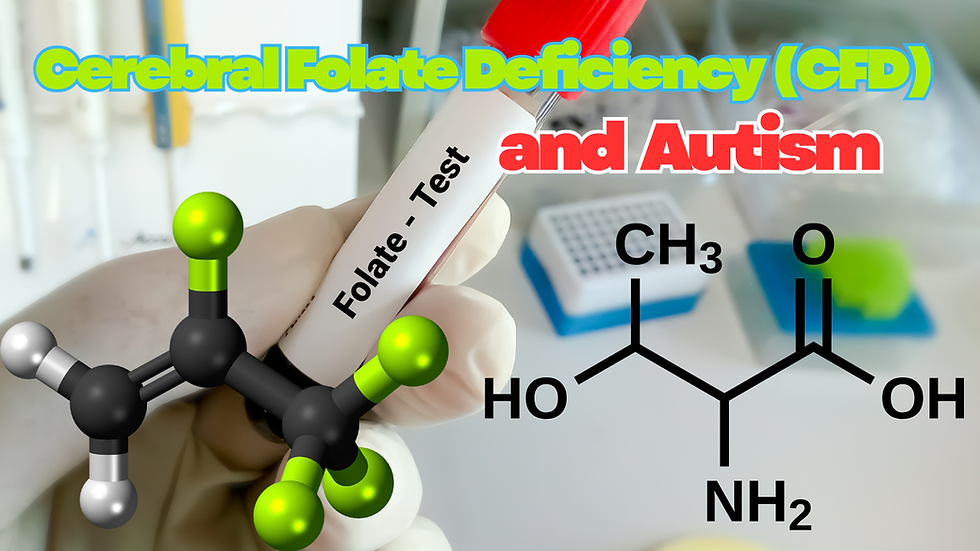How Golf Empowers Individuals with Autism: A Path to Growth, Confidence & Connection
- Dr. Kevin Davis
- Apr 15, 2025
- 3 min read

Beyond the Greens—Golf as a Game-Changer for Autism
When discussing autism-friendly sports, the spotlight often lands on fast-paced, team-driven games. Yet, a quieter, more structured sport is emerging as a powerful ally for individuals on the autism spectrum—golf. With its calm ambiance, structured routines, and opportunities for self-paced progress, golf offers far more than recreation. It becomes a therapeutic journey, enhancing physical, emotional, and social development.
In this post, we explore the benefits of golf for autism—from boosting motor skills and mental focus to encouraging social interaction and emotional regulation.
Structure, Routine, and Predictability: Why Golf Works for Autism
For individuals with Autism Spectrum Disorder (ASD), predictability and structure are essential. Golf’s predictable routines and clear rules offer a controlled environment where players can thrive without the stress of constant change.
Unlike chaotic team sports, golf allows for individual pace, offering the comfort of repetition and autism-friendly routines. This reduces sensory overload, supports self-regulation, and nurtures a safe space for learning and growth.
Golf as a Therapeutic Tool for Motor Skill Development
Golf therapy for autism isn’t just about swinging clubs—it's a full-body, mind-body experience. Each swing builds fine motor skills, enhances hand-eye coordination, and strengthens gross motor control—all vital for those working on autism motor development.
The repetition in golf supports muscle memory and improves balance and body awareness, making it a gentle but effective form of physical therapy for those with coordination challenges.
“Every swing is a step forward in body awareness and motor skill confidence."
Mental Focus, Patience & Emotional Growth Through Golf
Golf demands focus, patience, and discipline—all areas where individuals with autism can grow tremendously. It becomes a form of mindfulness, requiring players to be present, deliberate, and calm.
For those facing emotional regulation challenges, the game’s slower pace provides space to breathe, reset, and try again—making golf a beautiful metaphor for life.
"Golf teaches the art of waiting and the strength of trying again."
Social Interaction in a Low-Pressure Setting
Though often perceived as a solo sport, golf can be incredibly social. Group lessons, family outings, and community golf events offer structured, low-pressure opportunities to practice autism social skills through golf.
Whether it’s learning turn-taking, engaging in brief conversations, or playing alongside peers, golf allows individuals with autism to build social confidence and communication skills in a non-intimidating environment.
"On the course, friendships form one shot at a time."
Nature, Relaxation & Stress Relief on the Course
Set in scenic, open landscapes, golf courses offer natural sensory therapy. The quietness, fresh air, and visual openness can help reduce anxiety and sensory overload. This makes golf a relaxing and restorative coping mechanism for autism.
"In the stillness of the course, many find peace."
Building Confidence, Independence, and Life Skills
Golf isn't just a sport—it’s a journey of personal empowerment. As individuals improve, they build self-esteem, learn goal-setting, and celebrate achievements big and small.
With practice, golf fosters independence, encourages self-discipline, and cultivates habits that spill over into daily life—from better concentration to improved emotional control.
"With every hole played, confidence grows, and life skills develop."
Conclusion: Golf—A Meaningful Pathway to Empowerment for Autism
Golf stands out as more than a game for individuals with autism—it becomes a therapeutic experience that fosters growth, builds resilience, and strengthens both body and mind. Its structured nature, calming rhythm, and opportunities for social connection make it an ideal sport for individuals on the autism spectrum.
Whether you’re a parent, educator, or therapist looking for an empowering activity, consider introducing golf as a life-enhancing sport for someone with autism.
“Golf isn’t just about getting the ball in the hole—it’s about helping individuals find focus, freedom, and fulfillment.”




Comments